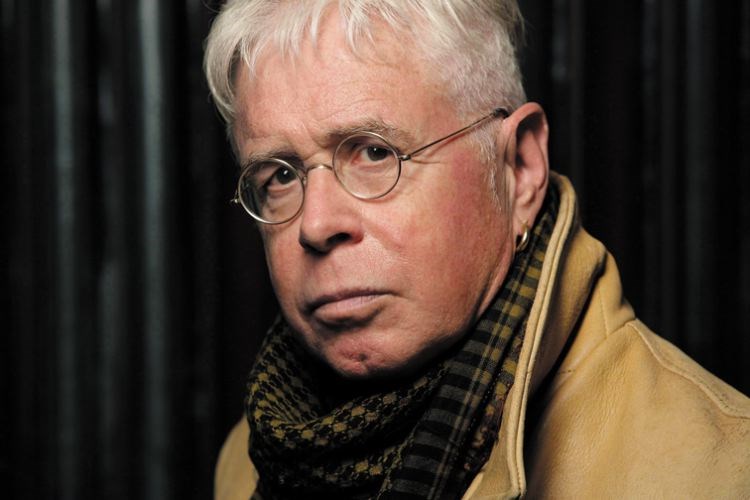Rock 'n' roll poets are few, but Bruce Cockburn is one of those rare legends of both instrument and word.
His songs have been quoted in books and movies and even in other songs (by U2 in God Part II). Cover versions of his songs have catapulted other acts to stardom (Barenaked Ladies). And his name has been evoked in global conversations for humanitarian efforts and social development.
Other stars like Jackson Browne, Jimmy Buffett and Emmylou Harris are outspoken fans. Steve Bell, one of Canada's most notable Christian performers, did an entire album of Cockburn covers.
Cockburn is, by any estimation, a master of the guitar. He plays a finger-style that was honed on jazz at the Berklee School of Music but the raw material was carved from the blues found around his Ottawa upbringing, then steeped in international concepts he picked up along the way. When Cockburn travels, he always brings a little something home.
He also has a healthy appetite for poetry, from which his abundant lyrics emerge.
He's written some lightning bolts, the most famous of which is "gotta kick at the darkness 'til it bleeds daylight" found tucked in the folds of his classic hit Lovers In A Dangerous Time.
It is hardly alone. Sizzling metaphors and turns of phrase engorge the sails of his music career.
He told The Citizen that he studies master poets and reads it for fun as well, but he knows his place on that bookshelf.
"In a way, writing songs gives you an out. You can get away with - and sometimes you're obliged to get away with - things that wouldn't really stand up on the page very well, because they have to go with the music," he said.
"I can say yeah, I'm a pretty good guitar player for a songwriter, or I'm a pretty good songwriter for a guitar player. It's not really poetry, what I do, but it's so much like it I hold myself to that standard."
He cites Robert Bly, Blaise Cendrars and Kenji Miyazawa as some of his favourites, but the first one that turned him onto poetry at all was Ars Poetica by Archibald MacLeish he discovered in
Grade 6, and the first one who inspired some of his directions in life came with a beat.
"Allen Ginsberg was for me what Bob Dylan was as a songwriter," Cockburn said of the back alley bard of San Francisco - the city in which Cockburn now lives.
It wasn't a pilgrimage. Cockburn's wife has a job there, Cockburn's work is portable, so the move was academic. So was becoming the stay-at-home parent for their daughter, now five.
He spent her first three years writing a different sort of composition. He penned his autobiography, Rumours Of Glory, during her first three years.
"It seemed like the right time. It seemed like I was old enough to have a story to tell," he said.
The topic of a book had come up before, but this one was suggested by publisher HarperCollins who urged him to talk about his spiritual Christian mentalities as much as his music and social activism.
"During that period I didn't write any songs so I was kind of wondering if I would be a songwriter again after that was put to bed. And luckily, I think, I still am," he said. The album Bone On Bone is the echo of that, scheduled for release in September.
Perhaps some of that new material will spread across Canada Games Plaza tonight when Cockburn performs at tonight's edition of the Heatwave Festival celebrating Canada's 150th anniversary.
Cockburn has always been a proud representative of Canada, on the global stage. But he is also a fiercely realistic one.
Songs like Stolen Land, They Call It Democracy, and If I Had A Rocket Launcher are but a few that prick the skin of abuse to indigenous people here and around the world.
He has gone to places where these abuses are splattered in blood. Canada's power imbalance has been violent, there have been brutalities and victimizations, but he is cognizant that at least the conversations now are about reconciliation, restoring balance, and minimizing the ongoing damage.
"We were duplicitous colonists and then we were bad friends," he said, knowing that this week's Canada Day celebrations are only valid if they take stock of the pain the making of Canada caused, and still causes with documents like the federal Indian Act still overlaying aboriginal relations.
"It is obviously an ongoing concern," he said.
"A lot of the right noises are being made but not a lot of the right actions are taking place, yet. There's some good talk, and good talk is better than no talk, and changes are slowly occurring but thing we have to remember on all sides is, we have no where else to go. We've got to deal with this like family members in a situation that needs rectifying. It's a dialogue that has to go on between brothers and sisters, not 'us' and 'them.'"
He also has his daily dose of local politics to keep his eyes clear on Canada's progress. He lives in the nation that can't seem to stabilize its rhetoric anymore. Cockburn likened Donald Trump to the demonic clown named Violator in the Spawn comic book series.
"The dialogue is no longer civil," he said of the American cultural condition anymore. "There is no room for reasoned dialogue. There's no room for friendly persuasion. The only persuasion is at gunpoint, and we haven't quite gotten there yet, but it is on the horizon. It is amazing to hear where it's gone."
As a poet, a songwriter, an author, in almost any form he's ever taken Cockburn is above all an observer who conveys what he sees in forms of art. Tonight, he shares that with Prince George.
The festivities get underway at 7 p.m. with opening acts Khast'an Drummers and Scarlett Jane.



